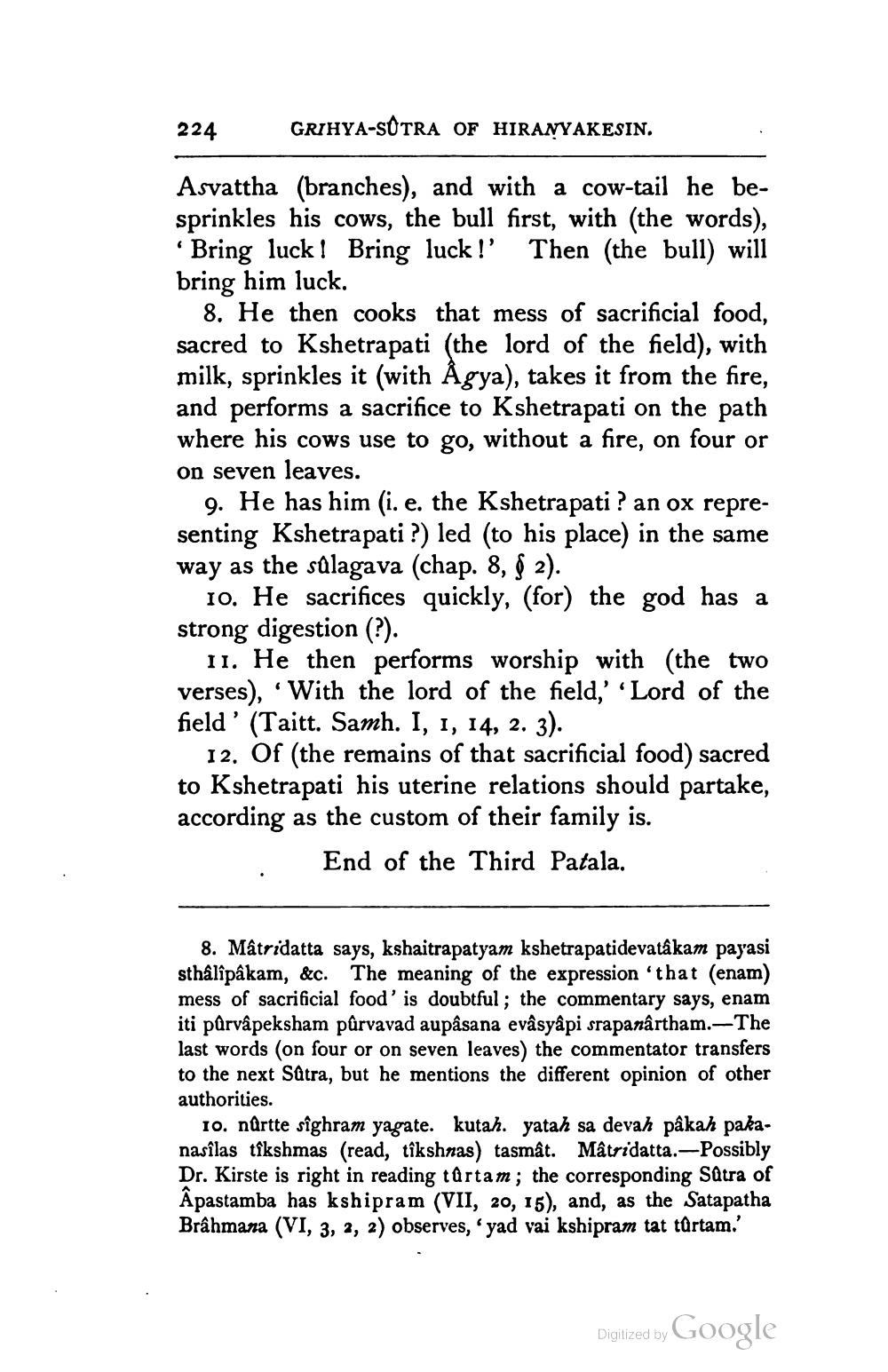________________
224
GRIHYA-SUTRA OF HIRANYAKESIN.
Asvattha (branches), and with a cow-tail he besprinkles his cows, the bull first, with the words),
Bring luck! Bring luck!' Then (the bull) will bring him luck.
8. He then cooks that mess of sacrificial food, sacred to Kshetrapati (the lord of the field), with milk, sprinkles it (with Agya), takes it from the fire, and performs a sacrifice to Kshetrapati on the path where his cows use to go, without a fire, on four or on seven leaves.
9. He has him (i.e. the Kshetrapati ? an ox representing Kshetrapati ?) led (to his place) in the same way as the sûlagava (chap. 8, § 2).
10. He sacrifices quickly, (for) the god has a strong digestion (?).
11. He then performs worship with (the two verses), With the lord of the field,' 'Lord of the field' (Taitt. Samh. I, 1, 14, 2. 3).
12. Of (the remains of that sacrificial food) sacred to Kshetrapati his uterine relations should partake, according as the custom of their family is.
End of the Third Patala.
8. Mâtridatta says, kshaitrapatyam kshetrapatidevatâkam payasi sthâlîpâkam, &c. The meaning of the expression that (enam) mess of sacrificial food' is doubtful; the commentary says, enam iti pûrvâpeksham purvavad aupâsana evâsyâpi srapanârtham.—The last words (on four or on seven leaves) the commentator transfers to the next Sätra, but he mentions the different opinion of other authorities.
10. nürtte sîghram yagate. kutah. yatah sa devah pâkah pakanasîlas tikshmas (read, tîkshnas) tasmât. Mâtridatta.-Possibly Dr. Kirste is right in reading târtam; the corresponding Sätra of Apastamba has kshipram (VII, 20, 15), and, as the Satapatha Brâhmana (VI, 3, 2, 2) observes, 'yad vai kshipram tat tårtam.'
Digilized by Google




